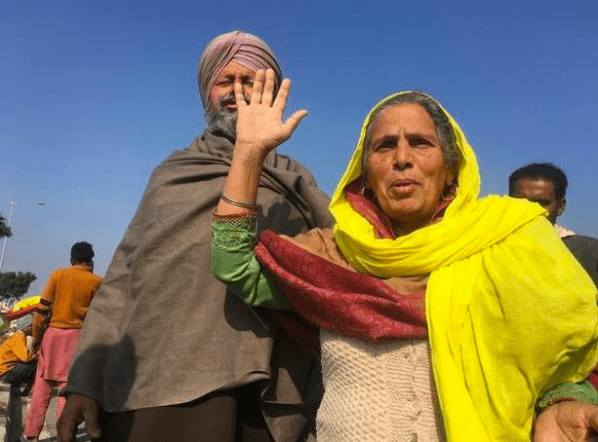Last Updated on January 22, 2021 at 7:43 pm
It has been more than a month since the farmers’ protest for abrogating all three agricultural laws has found its way in border areas of the national capital. Even when the temperature is continuously trying to reach zero, still farmers have largely been undeterred in their demands. An important aspect has been women who have participated in this protest as enthusiastically as men. Even though India is a largely conservative society and women find themselves limited to kitchens but this protest seems to question that stereotype.

Harinder Kaur Bindu, Bharatiya Kisan Union said that they held special meetings in many villages to educate women on how these laws. Harinder is the general secretary of Bharatiya Kisan Union (Ekta Ugrahan) which is the largest farmer’s union in Punjab.
Manjeet Kaur, a small farmer with two acres of land said that they have sold a quintal of rice for Rs 2,200 now. If the Mandi Board gets dismantled, then they may have to sell their harvest for half the price. Another woman farmer what will be left with her if her only source of livelihood is taken away from her. There are five members in her family who rely on their 12-acre land. Her husband suffered a spinal cord injury and can’t work in the fields.
The Essential Commodities (Amendment) Act, 2020 removes cereals, pulses, oilseeds, edible oils, onions and potatoes from essential commodities and permits its storage in a large amount. This provision allows large businesses to enter the market.
Many young women students from universities across Punjab are also actively participating in this protest. many of these students belong to farmer families. They have apprehensions that consistently decreasing farm incomes will hit their freedom and agency. Sukhpreet Kaur asks that with falling farm incomes, girls will not be allowed to pursue their education and will be pushed back to household chores or raising children. She is a second-year Master’s student in Economics at Government Brijindra College in Faridkot district. She doesn’t belong to a rich family and her parents laboured hard for her admission in a university.
Honourable Chief Justice of India (CJI) has recently remarked that women and children shouldn’t be a part of this protest and should be sent home. Many raised objections to the statement and said that women are an integral part of the protest.
While farm laws have enough supporters and critics and leaving aside its implications for a moment, it is commendable that so many women decided to come out on the streets to make their voices heard. All one can hope is that women continue to take stand publicly whether they are for or against the government’s policies. In an ideal democracy, voices of one half of the total population can’t be left unheard.



